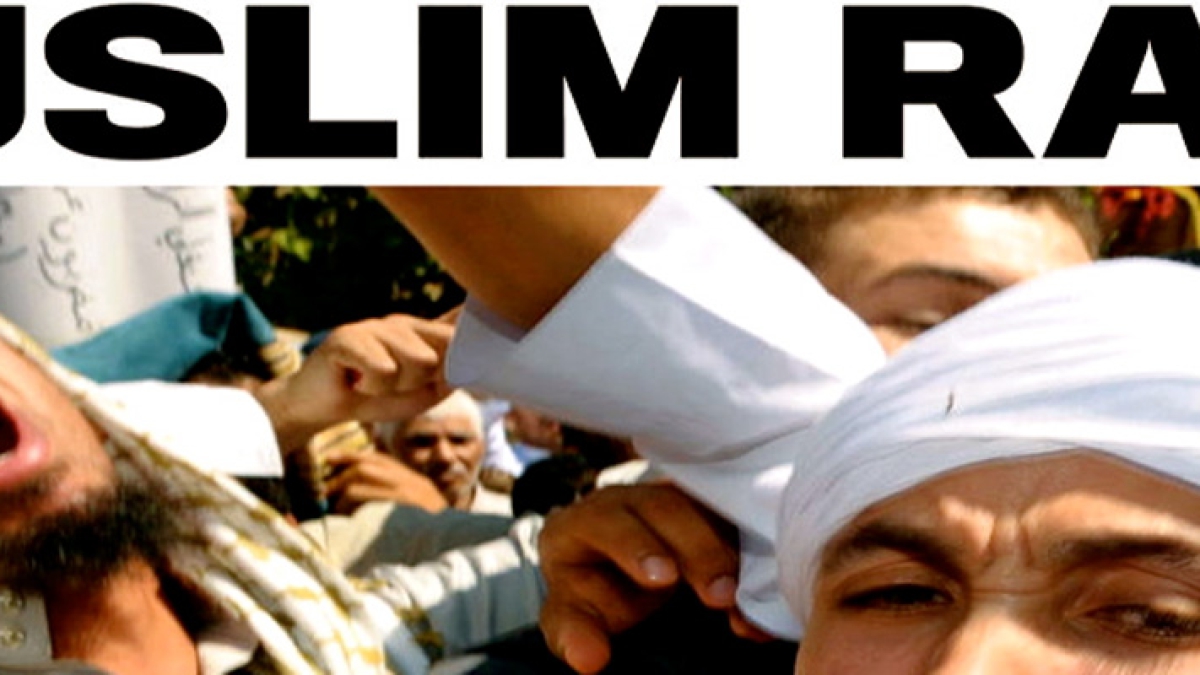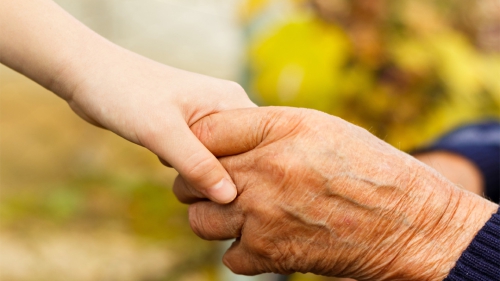An Intelligent Conversation about Muslim Rage

Muslim rage has reached epidemic levels in many parts of the world. It seems almost uncontrollable that Muslims rampage through the streets at the drop of a hat, or fight and kill each other over religious differences seemingly without forethought; this rage manifests itself publicly as violent demonstrations, terrorism, suicide bombings, mob style justice in the streets, Muslim on Muslim killing in the name of Allah, and almost unending contentious and vociferous, sectarian and religious debates often resulting in fighting, killing and loss of property. Even when the physical manifestations of rage aren't present, there is still that undercurrent of anger and negative emotion that hisses like a powder keg waiting to explode. A very dangerous trend is in play, and has been in many parts of the Muslim world; many Muslims are starting to identify themselves by what they hate, more than by what they love.
This does not bode well for the future of Muslim morality. Being too easily enraged is not a commendable trait in Islam, and it is more a sign of moral weakness than it is of moral fortitude; the Prophet (SAWS) said that "The strong is not the one who overcomes the people by his strength, But the strong is the one who controls himself while in anger" Even Allah sub'haanahu wa ta'ala, tempers His own anger, and no one is more in control of himself than Allah the Almighty. In the hadith of Abu Hurraira, the Prophet (SAWS) reported that Allah has written over his throne the words; "verily my mercy precedes my anger".
Rage is a blinding emotion that cancels out patience and inhibits one's ability to see the truth, or to act justly in important matters. Patience, justice and fair dealing are at the heart of any fair and just society. The pre-eminence of anger and rage in Muslim societies undermines the realization of the Islamic ideal of civilization, civil harmony and god-centered society. When rage is nurtured and placated, we end up with mobs running through the streets, burning, shouting, looting, destroying property, and taking lives. When patience, justice and temperance are championed instead of rage, we end up with rational decision making, justice, and civil order.
Although remotely possible, it is very unlikely that ration will evolve out of rage, and without ration, righteousness will suffer, because in Islam, in order to have righteousness, you must have intent, and in order to have intent, you must have ration, thus, when there is rage, the intention is subverted. In the hadith of Aisha (RA), she reported that the Prophet (SAWS) said: "There is no divorce and no manumission in the event of ighlaaq,"" and according to the late Shaykh Bin Baaz, a divorce pronounced at the time of rage, is not valid, and this is the position of the majority of scholars. Prisons are full of men and women who acted out of rage and anger only to decry later that it wasn't their intention to do what they did.
Intense rage borderlines insanity and the standards of Muslim morality necessitates that we control our anger so it doesn't lead us to rage and pilot us to do things that we regret later on. It also necessitates that we consider seriously, the notion that across the board behavior change is warranted. This is not about the blasphemous movie about the Prophet (SAWS), or the insidious cartoon portrayal of him (SAWS), several years ago, or about the many other instances of disparagement; this is about a sober accounting of our identity as Muslim peoples, and the preponderance of rage within our ranks.
Obviously there are underlying factors that contribute to these frequent bouts of Muslim rage; repressive governments, economic stress, foreign occupation in Muslim countries, a deep sense of inferiority and resentment towards the West, and faulty clerical teachings which contradict scripture and capitalizes upon current events. However that doesn't mean that enraged Muslims who rampage the streets, burning, looting, and destroying property, and even fighting each other over real or perceived insults, or religious and theological differences, should be given a free pass. They, like everyone else need to be held to a minimal standard of not just morality, but moral maturity. No matter how much we try to avoid taking responsibility for our actions and behavior, the matter of collective ethical responsibility will always come back to bite us.
It is imperative that we address the issue of Muslim rage in the world because rage is a catalyst for so many of our current civilizational woes as Muslims peoples; Muslim on Muslim killing and sectarianism, mobs rampaging in the streets, terrorism, violent religious extremism, an inability to forgive and make amends, and constant intra-religious and inter-tribal warfare. If we are going to have to teach each other all over again how to forgive and be just, then let that be the mission at hand. However, this is an issue that we cannot afford to ignore; part of being morally mature is to accept the possibility that behavioral change is sometimes necessary.
Rage results when anger goes unchecked, and the first step in getting a handle on Muslim rage is to gain control of anger. It is not possible to remove the emotion of anger from the human being all together. However, anger is something that needs to be avoided; especially in light of the growing and uncontrollable amounts of Muslim rage present in our times. "Those who spend (freely), whether in prosperity, or in adversity; who restrain anger, and pardon (all) men;- for Allah loves those who do good". [Qur'an 3:134] This is why when the man came to the Prophet (SAWS) seeking advice, he said: "Do not get angry", and when he came back repeatedly the Prophet (SAWS) responded by saying: "do not get angry".
If we are going to use Islam as our raison d'tre, we must then also accept Islamic standards as governing criteria for our actions and behavior. Episodes of moral immaturity erode moral capital, and invoke divine consequences upon us, and unless we face up to it, we'll be repeating this reality show time and time again for many years to come.
It was the practice of the Prophet (SAWS) to control his anger and to encourage clemency. Anger by itself is not necessarily a problem; it's when anger goes unchecked and escalates that leads to the problems. This is why the Prophet (SAWS) when he would see people exhibiting anger; he would direct them to temper it, or to at least not act upon it. For example, when Umar Ibn al-Khattaab became angry with Haatib ibn Abi Balta'a for divulging sensitive information to the Meccans, shortly before the conquest of Mecca, Umar wanted to kill him and said: O Messenger of Allah let me cut off the head of this hypocrite! The Prophet (SAWS) replied, "no Umar, for He (i.e. Haatib) has witnessed the Badr battle and what could tell you, perhaps Allah looked at those who witnessed Badr and said, "O the people of Badr (i.e. Badr Muslim warriors), do what you like, for I have forgiven you." .
Abu Bakr as-Siddiq the beloved companion of the Prophet was so angry at his relative; Mistah ibn Abi Athaatha after the latter's unflattering comments about Aisha (RA) who was the wife of the Prophet and the daughter of Abu Bakr that he cut him off from expenditures, as Abu Bakr used to pay for his upkeep. Allah responded to this situation with the revelation of this verse; "Let not those among you who are endued with grace and amplitude of means resolve by oath against helping their kinsmen, those in want, and those who have left their homes in Allah's cause: let them forgive and overlook, do you not wish that Allah should forgive you? For Allah is Oft-Forgiving, Most Merciful." [Qur'an 24:22]. In other cases, the Prophet (SAWS) offered a remedy to people whose anger was at risk of elevating; in the hadith of Sulayman ibn Sard, he said: "I was sitting with the Prophet (peace and blessings of Allah be upon him), and two men were slandering one another. One of them was red in the face, and the veins on his neck were standing out. The Prophet (SAWS) said, `I know a word which, if he were to say it, what he feels would go away. If he said "I seek refuge with Allah from the Shaytaan," what he feels (i.e., his anger) would go away." It is clear from the Prophet's statement (SAWS) that he wanted to see the man's anger subside, and not escalate.
Positive emotions such as love, caring, clemency, forgiveness, and benevolence are more controllable and have greater moral capital than emotions such as anger, rage, hate, and vindictiveness. Anger, hate and rage, are often uncontrollable and lends to extremes more than their opposites. This is why there are so many warnings in the Quran and the sunna with regard to anger, hatred and enmity than there are with respect to love, forgiveness. For example; ["O ye who believe! stand out firmly for Allah, as witnesses to fair dealing, and let not the hatred of others to you make you swerve to wrong and depart from justice. Be just: that is next to piety: and fear Allah." [Qur'an 5:8]. Again and again, Allah sub'haanahu wa ta'ala reiterates that acting upon anger and rage is not always the best choice; "Nor can goodness and Evil be equal. Repel (Evil) with what is better: Then will he between whom and thee was hatred become as it were thy friend and intimate!" [Qur'an 41:34] Furthermore, as the following verse reveals, such an ideal cannot be realized within a human being unless he or he exercises patience; "And no one will be granted such goodness except those who exercise patience and self-restraint,- none but persons of the greatest good fortune", [Qur'an 41:35]
Negative emotions tend to take on a life of their own. We have become so accustomed to employing anger as an organizing staple, that many Muslims leaders are finding that the only platform upon which they can motivate masses of Muslims is by tapping into their reservoir of fury. The danger here is that many Muslims are starting to define themselves by what they hate, instead of what they love, and this phenomenon has terrible implications for future Muslim civilization. Find a common enemy, or common target of anger, you've got yourself thousands in the streets. Make an appeal for Muslims unity or curbing sectarianism and you get lip service, and photo-ops. Muslims need to rediscover the virtues of forgiveness, mercy and conciliation, and that may require a major overhaul of attitude; because even if we win the battle of expression with our amplified rage, our large and boisterous demonstrations and condemnations, and our egregious statements through wanton violence, we will lose the war of faith and moral resolve in the process, and that's the war that will matter the most in the end.
And Allah knows best.
Imam Luqman Ahmad is American born Imam. He has been serving as the Imam and Executive Director of a Northern California Mosque, [Masjid Ibrahim Islamic Center] since 1996. He is a classically trained Imam who is a graduate of Omdurman Islamic University in the Sudan and has also studied at Umm al-Qura University in Mecca Saudi Arabia. He a member of NAIF [North American Imam's Federation], a founding member of COSVIO [Council of Sacramento Valley Islamic Organizations] and a prominent and active member of the Sacramento Muslim community. He can be reached at imamabulaithyahoo.com.
Related Suggestions

















